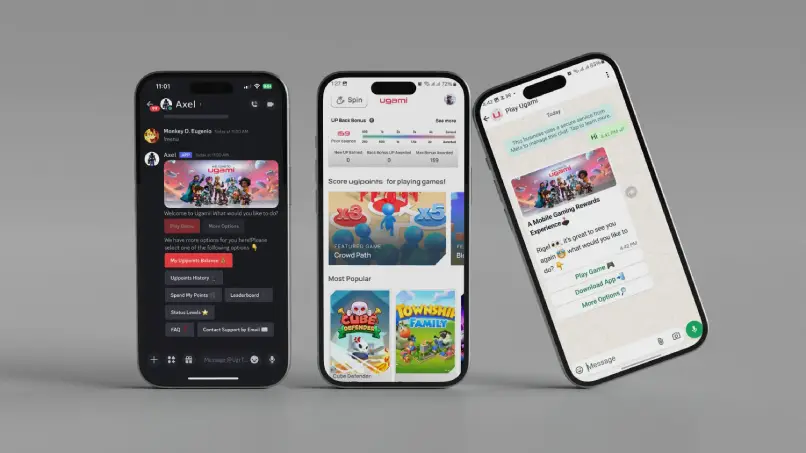Why Play-to-Earn Rewards Are Changing the Way You Play and Gain
The appearance of play-to-earn designs represents a notable change in the video gaming landscape, welcoming players to check out not only the entertainment worth of video games but additionally their possible as income-generating platforms. This standard uses diverse benefits, consisting of possession possession through blockchain innovation, which essentially alters gamer interaction and investment. Nevertheless, as this version advances, it provides a special set of challenges that can affect its sustainability and charm. Recognizing these characteristics increases important concerns concerning the future of gaming and the implications for both gamers and programmers alike.
Introduction of Play-to-Earn Designs
In the last few years, the video gaming sector has actually observed a considerable improvement with the appearance of play-to-earn versions, basically changing just how gamers involve with electronic settings. This innovative method allows gamers to acquire tangible benefits with their in-game tasks, producing a shift from traditional gaming standards where satisfaction and competitors were the main motivations.
Play-to-earn versions utilize blockchain modern technology and non-fungible tokens (NFTs) to offer players with possession of in-game possessions, which can be traded or offered for real-world money. Consequently, players are incentivized to spend effort and time right into games, cultivating a sense of agency and monetary chance. play to earn rewards. This shift has actually brought in a varied gamer base, including those who may have previously checked out gaming as a simply leisure activity
A number of systems have emerged, showcasing successful executions of this model, such as Axie Infinity and Decentraland. These systems have not just produced substantial income however likewise stimulated discussions around the sustainability and values of such financial systems. As play-to-earn designs remain to progress, they guarantee to redefine the connection in between players, developers, and the wider electronic economy, leading the way for a new period in video gaming.
Advantages for Players
As players engage with play-to-earn designs, they unlock a range of advantages that extend beyond plain amusement. Unlike traditional video gaming, where players invest time and money without tangible returns, play-to-earn systems allow players to earn copyright or in-game possessions that can be converted to real-world worth.
Furthermore, play-to-earn designs promote neighborhood building amongst players. Players often collaborate to accomplish common objectives, therefore growing social links that improve the total experience. This sense of neighborhood can bring about cooperative gameplay, where players share methods and sources, improving both personal and team accomplishments.
Furthermore, these models can democratize accessibility to gaming by allowing gamers from varied economic backgrounds to profit economically. By getting involved in play-to-earn environments, individuals can gain abilities and knowledge about blockchain modern technology, additional broadening their profession opportunities in the expanding electronic economic climate. Inevitably, the benefits for gamers prolong well beyond gameplay, affecting their social, financial, and academic landscapes positively.
Obstacles in the Community
While the play-to-earn ecosystem presents significant possibilities, it is not without its challenges. Fluctuations in worth can discourage prospective gamers that look for steady earnings streams.
One more obstacle is the threat of rip-offs and deceitful plans that can afflict the environment. Gamers may experience misleading systems assuring high rewards but inevitably bring about financial loss. Ensuring count on and security is important for the long-term feasibility of play-to-earn designs.
In addition, the ecological influence of blockchain pc gaming can not be ignored. The power consumption connected with mining and deal handling increases ethical concerns concerning sustainability. Game programmers need to locate an equilibrium in between rewarding gamers and minimizing eco-friendly footprints.
Finally, the regulatory landscape is still developing, posing potential dangers for programmers and gamers alike. Uncertain lawful frameworks can prevent development and restrict the development of play-to-earn ecological communities. Attending to these challenges is necessary for understanding the complete possibility of this transformative pc gaming paradigm.
The Role of Blockchain Technology
Blockchain technology serves as the foundation of the play-to-earn community, resolving much of the difficulties formerly laid read here out. By making use of decentralized ledgers, blockchain guarantees openness and protection in deals. Players can confidently make and trade in-game properties, recognizing that possession is proven and exempt to adjustment.

Tokenization of possessions plays a vital function, approving players real ownership of their in-game products, which can be purchased, marketed, or traded on various marketplaces. This motivates a dynamic additional market, where gamers can monetize their skills and time spent in the video game.
In addition, blockchain innovation makes it possible for interoperability between different games and systems, enabling gamers to carry their assets throughout different communities. This adaptability not only enhances customer experience yet likewise promotes a much more comprehensive gaming setting, inevitably improving the landscape of pc gaming and earning.
Future Patterns in Video Gaming
The gaming sector is on the edge of a transformative evolution, driven by arising innovations and shifting player assumptions. As play-to-earn models gain traction, gamers are increasingly seeking immersive experiences that blend amusement with tangible benefits. This shift is prompting programmers to introduce, concentrating on creating appealing gameplay that cultivates community and communication.
One remarkable fad is the assimilation of virtual reality (VIRTUAL REALITY) and enhanced reality (AR), boosting the gaming experience by giving much deeper immersion and interactive environments. Additionally, improvements in man-made intelligence are allowing a lot more sophisticated non-player characters (NPCs) look at this site and flexible gameplay, customizing experiences to private gamer choices.

Conclusion
In verdict, the play-to-earn design is significantly transforming the pc gaming landscape by making it possible for gamers to obtain real-world value from their in-game tasks. This standard shift not only boosts gamer involvement and financial investment but likewise increases challenges that must be dealt with to make certain sustainability within the ecosystem. As blockchain innovation proceeds to promote ownership of digital possessions, the future of video gaming guarantees more technology and opportunities for players throughout diverse backgrounds.